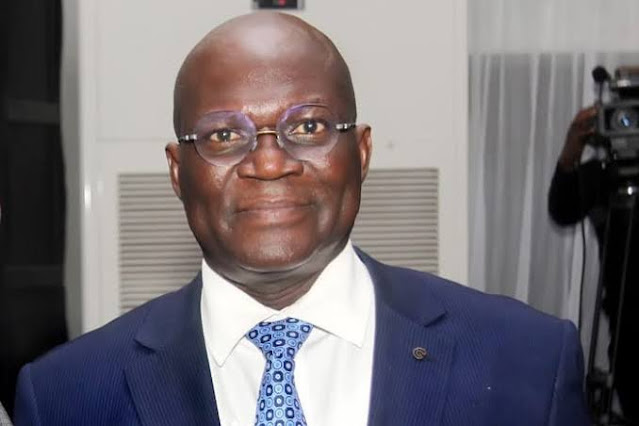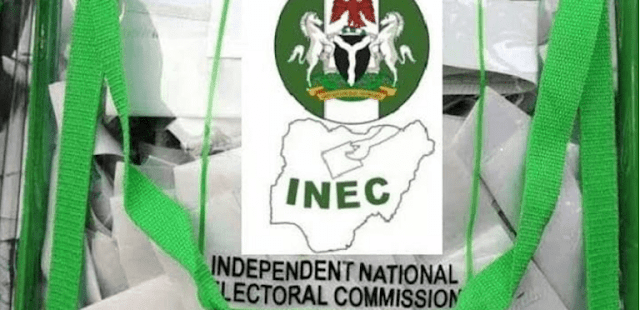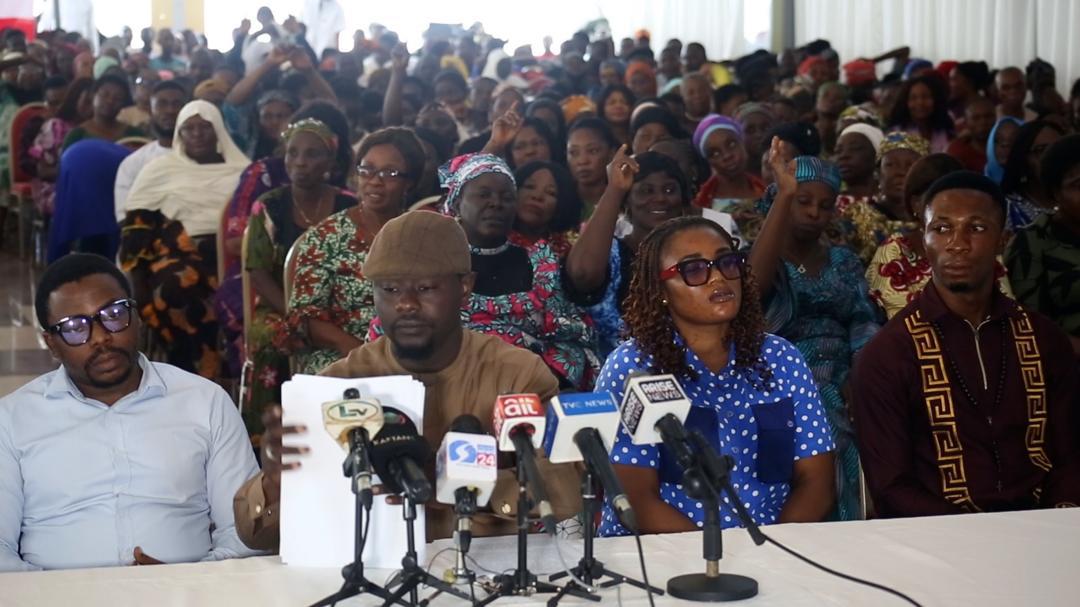In a fiery escalation of political rhetoric in Osun State, Nigeria, the All Progressives Congress (APC) has launched a scathing attack on prominent Nigerian journalist and media personality Dr. Reuben Abati, accusing him of engaging in what they term “professional terrorism.” The accusation stems from Abati’s recent commentary on the contentious issue of local government (LG) allocations in Osun State, where he allegedly made claims that the APC deems misleading and damaging to the state’s governance structure. The APC’s strong rebuke, issued through a statement by its Osun State chapter, has ignited a broader debate about the role of the media, the ethics of journalism, and the delicate balance between free speech and responsible reporting in Nigeria’s volatile political landscape.
The controversy centers on Abati’s remarks, reportedly made during a broadcast on Arise Television, where he is a co-anchor on the popular program The Morning Show. According to the Osun APC, Abati claimed that the state government, led by Governor Ademola Adeleke of the Peoples Democratic Party (PDP), was withholding funds meant for local government councils, thereby stifling grassroots development and governance. The APC alleges that these claims are not only factually incorrect but also deliberately crafted to incite public discontent, tarnish the image of the state government, and undermine the APC’s political standing in Osun State. In their statement, the party described Abati’s actions as a form of “professional terrorism,” a term that has sparked significant debate due to its inflammatory nature and implications for press freedom.
This article delves into the details of the APC’s accusations, the context of Abati’s comments, the broader issue of local government allocations in Nigeria, and the implications of this dispute for both journalism and politics in Osun State and beyond.
The APC’s Allegations: A Charge of Professional Terrorism
The Osun State chapter of the APC, in a press release signed by its Publicity Secretary, Chief Kola Olabisi, expressed outrage at what they described as Abati’s “unprofessional and reckless” commentary on the state’s handling of local government funds. The party accused the veteran journalist of using his platform on Arise Television to spread falsehoods and incite public unrest. According to the APC, Abati’s claims that Governor Adeleke’s administration was diverting or withholding LG allocations were baseless and lacked any verifiable evidence.
The term “professional terrorism” as used by the APC is particularly striking. The party argued that Abati’s statements were not merely erroneous but constituted a deliberate attempt to destabilize the state by sowing discord between the government and the people. The APC’s statement read, in part: “Dr. Reuben Abati’s utterances on the issue of local government allocations in Osun State are not only misleading but also a calculated attempt to engage in professional terrorism. By peddling falsehoods on a national platform, he has abused the privilege of his profession and sought to undermine the peace and stability of Osun State.”
The APC further alleged that Abati’s comments were motivated by partisan interests, suggesting that he was aligning himself with the PDP to discredit the APC’s legacy in Osun State. The party pointed to Abati’s past role as a media aide to former President Goodluck Jonathan, a PDP stalwart, as evidence of his alleged bias. They claimed that his commentary was part of a broader agenda to paint the APC in a negative light ahead of future elections in the state.
The APC also called on Abati to retract his statements and issue a public apology, threatening legal action if he failed to comply. The party emphasized that such “irresponsible journalism” could have far-reaching consequences, including inciting unrest among citizens who rely on local government services for their daily needs.
Reuben Abati’s Commentary: Context and Content
To understand the APC’s accusations, it is essential to examine the context and content of Abati’s remarks. While the exact transcript of his comments on Arise Television was not provided in the APC’s statement, sources familiar with the broadcast indicate that Abati was discussing the broader issue of local government autonomy in Nigeria, with Osun State as a case study. He reportedly highlighted concerns raised by some stakeholders in Osun, who claimed that local government councils were not receiving their full allocations from the state government, leading to inefficiencies in service delivery at the grassroots level.
Abati’s commentary was part of a larger national discourse on local government autonomy, a contentious issue in Nigeria’s federal system. The Nigerian Constitution grants local governments a degree of financial and administrative autonomy, with allocations disbursed directly from the Federation Account to LG councils. However, in practice, state governments often exercise significant control over these funds, leading to accusations of mismanagement or diversion. In recent years, the push for greater LG autonomy has gained traction, with the Federal Government and the National Assembly advocating for reforms to ensure that LGs receive and manage their funds independently.
In Osun State, the issue of LG allocations has been particularly sensitive due to the state’s political dynamics. The APC governed Osun from 2010 to 2022 under former Governors Rauf Aregbesola and Gboyega Oyetola before losing the 2022 gubernatorial election to the PDP’s Ademola Adeleke. Since taking office, Adeleke’s administration has faced criticism from the opposition APC, which has accused it of mismanaging state resources, including LG funds. Abati’s remarks, according to the APC, amplified these criticisms without providing evidence to substantiate the claims.
Abati, a seasoned journalist with decades of experience, is known for his incisive commentary on Nigerian politics and governance. His tenure as a columnist for The Guardian newspaper and his role as a media aide to President Jonathan have made him a prominent figure in Nigeria’s media landscape. However, his outspokenness has also made him a target of criticism, particularly from political actors who disagree with his views. In response to the APC’s accusations, Abati has not yet issued a formal statement, but sources close to him suggest that he stands by his comments and views them as part of his duty to hold public officials accountable.
The Broader Issue: Local Government Autonomy in Nigeria
The dispute between the Osun APC and Abati touches on a critical issue in Nigerian governance: the autonomy of local government councils. Nigeria’s 774 local government areas are recognized as the third tier of government under the 1999 Constitution, with responsibilities for providing essential services such as primary education, healthcare, and infrastructure development. These councils receive monthly allocations from the Federation Account, which are meant to fund their operations and development projects.
However, the relationship between state governments and LGs has long been fraught with tension. In many states, including Osun, state governments exert significant control over LG finances, often requiring councils to remit portions of their allocations to state coffers or channeling funds through joint accounts controlled by state officials. This practice has led to widespread allegations of mismanagement, with LG chairmen and citizens complaining that funds meant for grassroots development are diverted or misappropriated.
In 2020, the administration of President Muhammadu Buhari introduced measures to strengthen LG autonomy, including an executive order mandating direct payment of allocations to LG accounts. However, implementation has been inconsistent, with many states, including those governed by both the APC and PDP, resisting full compliance. In Osun, the issue has been a point of contention between the APC and PDP, with each party accusing the other of undermining LG autonomy for political gain.
The APC’s accusation against Abati must be viewed within this context. By alleging that Governor Adeleke’s administration is withholding LG funds, Abati tapped into a narrative that resonates with many Nigerians who are frustrated with the state of local governance. However, the APC argues that such claims are misleading in the case of Osun, where they insist that the state government is complying with federal guidelines on LG allocations.
Implications for Journalism and Press Freedom
The Osun APC’s decision to label Abati’s commentary as “professional terrorism” raises important questions about the role of the media in Nigeria’s democracy. Journalism in Nigeria has always been a high-stakes profession, with reporters and commentators often caught in the crossfire of political rivalries. The APC’s use of such a loaded term to describe Abati’s actions has sparked concerns among media practitioners and civil society groups about the potential chilling effect on press freedom.
The term “professional terrorism” is particularly contentious, as it implies that Abati’s actions are not only unethical but also akin to acts of violence or destabilization. Critics of the APC argue that this rhetoric is an attempt to intimidate journalists and stifle critical reporting. The Nigerian Union of Journalists (NUJ) and the Committee to Protect Journalists (CPJ) have previously warned against the use of inflammatory language to target media professionals, noting that such actions can embolden attacks on the press and undermine democratic discourse.
On the other hand, the APC’s frustration reflects a broader challenge faced by public officials in an era of rapid information dissemination. With platforms like Arise Television reaching millions of viewers, a single comment can shape public opinion and influence political outcomes. The APC’s call for Abati to retract his statements and apologize underscores their belief that journalists must exercise greater caution when addressing sensitive issues like LG allocations, which can inflame tensions in an already polarized political environment.
The Political Context in Osun State
The dispute between the Osun APC and Abati cannot be fully understood without considering the state’s political landscape. Osun has been a battleground for Nigeria’s two dominant political parties, the APC and PDP, with power alternating between them in recent years. The APC’s 12-year rule in Osun ended in 2022 when Adeleke defeated Oyetola in a closely contested election. Since then, the APC has been relentless in its criticism of Adeleke’s administration, accusing it of incompetence, mismanagement, and undermining the progress made during APC’s tenure.
The issue of LG allocations is particularly sensitive in Osun, where local councils play a critical role in delivering services to rural communities. The APC has sought to position itself as a champion of grassroots development, accusing the PDP of neglecting LGs to consolidate power at the state level. Abati’s comments, whether accurate or not, have provided fodder for this narrative, prompting the APC to respond aggressively to protect its political interests.
At the same time, the PDP has defended Adeleke’s administration, arguing that it inherited a state in financial distress due to mismanagement by the previous APC government. The PDP has also accused the APC of using the LG allocation issue as a distraction from its own failures during its time in office. This back-and-forth has deepened the political divide in Osun, with the media often caught in the middle.
Reactions and the Way Forward
The APC’s accusations against Abati have elicited mixed reactions from the public and stakeholders in Osun State. Some residents and political analysts have expressed support for the APC’s position, arguing that journalists must be held accountable for spreading unverified information. Others, however, view the party’s response as an overreach, warning that labeling a journalist a “professional terrorist” sets a dangerous precedent for press freedom.
Civil society organizations, including the Media Rights Agenda (MRA), have called for restraint on both sides, urging the APC to pursue dialogue rather than threats of legal action. They have also encouraged Abati to clarify his remarks and provide evidence to support his claims, in line with journalistic ethics.
For its part, the Osun State government has remained relatively silent on the issue, with no official statement from Governor Adeleke’s office addressing Abati’s comments or the APC’s accusations. This silence may reflect a strategic decision to avoid escalating the controversy further, particularly as the state prepares for local government elections in the coming months.
Conclusion
The clash between the Osun APC and Reuben Abati over LG allocations highlights the complex interplay between politics, journalism, and governance in Nigeria. The APC’s accusation of “professional terrorism” underscores the high stakes of public discourse in a politically charged environment, where words can inflame tensions or shape public perceptions. At the same time, Abati’s commentary reflects the media’s critical role in holding governments accountable, even as it raises questions about the need for accuracy and responsibility in reporting.
As Osun State navigates this controversy, the broader issue of local government autonomy remains unresolved, with implications for grassroots development and democratic governance. The resolution of this dispute—whether through dialogue, legal action, or public debate—will likely set a precedent for how similar conflicts are handled in Nigeria’s evolving political landscape. For now, the spotlight remains on Abati, the APC, and the delicate balance between free speech and political accountability in Osun State.








